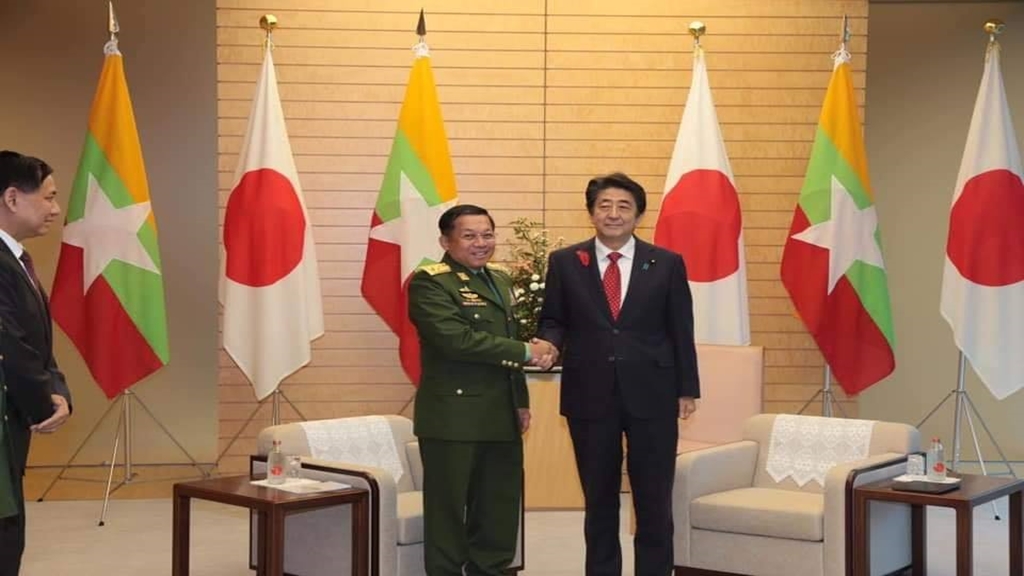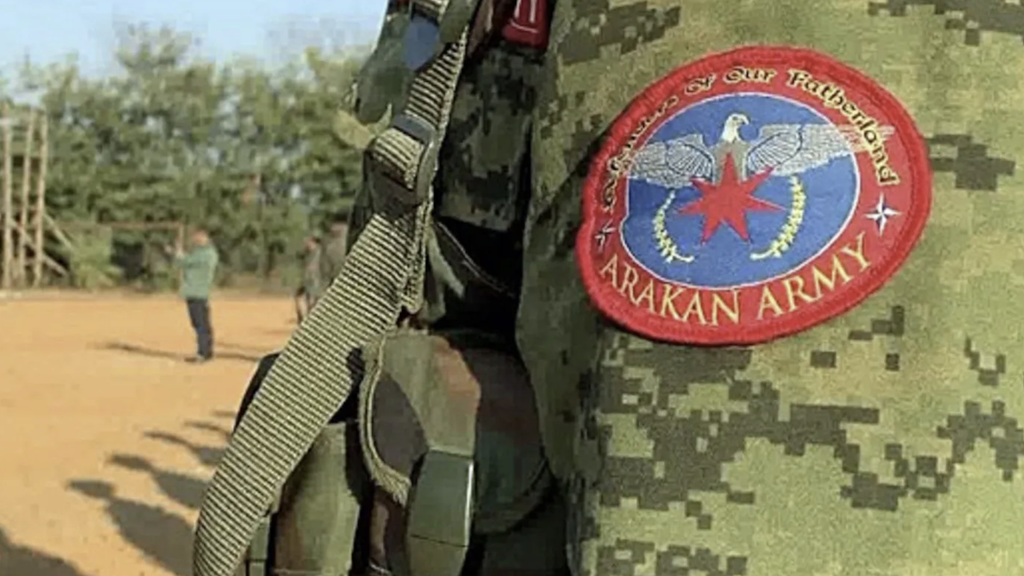
The Government of Japan Needs a Change in Approach
- 10/10/2019
- 0
By Aman Ullah
According to NHK (Japan Broadcasting Corporation) news, the Japanese Prime Minister Shinzo Abe held a meeting with the Commander-in-Chief of Myanmar’s Defense Services, Senior General Min Aung Hlaing on Oct 9, 2019. At that meeting Abe has asked the Myanmar’s military chief to address allegations of human rights violations against minority Rohingya Muslims. Abe said Japan hopes efforts by Myanmar’s military will improve the situation. He also recognized the commander-in-chief’s decision to halt military action against the minority people. Abe added that Myanmar’s government and military should act quickly regarding alleged human rights violations, and urged the commander-in-chief to take the initiative.
In reply, Min Aung Hlaing said that the military is working for domestic peace and stability and the early return of refugees and agreed to take appropriate measures.
Beginning in August 2017, the Myanmar military drove more than 730,000 Rohingya out of Myanmar through a large- scale security operations of ethnic cleansing and crimes against humanity. The atrocities include mass killings, sexual violence and widespread arson.
Senior General Min Aung Hlaing, the Commander-in-Chief of Tatmadaw (Myanmar Army), is the most powerful person both in law and practice in Myanmar. He can do or undo or redo anything in anytime, anywhere and by any mean. The Myanmar’s Tatmadaw headed by him has overall command and supervisory responsibility for armed forces throughout the country. The Tatmadaw is the primary institution responsible for carrying out the most recent security operations in northern Rakhine State since 25 August 2017.
These operations were directed by the Army’s Western Command, overseen by the Bureau of Special Operations in Nay Pyi Taw, which needed to report to the Commander-in-Chief. The then chief of the Western Command was Major General Maung Maung Soe. Under his command, the Myanmar Police Force and its Border Guard Division also have had involved in those operations in northern Rakhine State, which is the established practice during large-scale security operations in Myanmar. The General Administration Department of the Ministry of Home Affairs, also effectively under Army’s command and control, by invoking temporary emergency orders based on Myanmar’s criminal law.
The Tatmadaw remains the most powerful institution in the country, largely outside the control of the civilian government and its de facto leader State Counsellor Aung San Suu Kyi, who also serves as Minister of Foreign Affairs and Minister for the Office of the President. Cohabitation and cooperation with the Tatmadaw is a significant and ongoing challenge for the National League for Democracy (NLD)-led government, since entering office in March 2016 following national elections in November 2015.
The 2008 Constitution vests significant powers in the Tatmadaw. Article 20(b) confers upon the Tatmadaw the right to independently administer its own affairs without effective oversight from civilian executive authorities, the legislature or the judiciary.
Articles 109(b) and 141(b) allocate to the Tatmadaw 25 percent of seats in each of the two houses of the national legislature. These members of parliament are nominated by the Commander-in-Chief as per article 14 of the Constitution, and they are answerable to the Commander-in-Chief, as clarified in article 33 of both the 2010 Amyotha Hluttaw Election Law and the 2010 Pyithu Hluttaw Election Law. The Tatmadaw also has a majority of seats – six of 11 positions – on the powerful National Defence and Security Council, as prescribed in article 201 of the Constitution. One of Myanmar’s two serving Vice-Presidents, Vice President General Myint Swe, was nominated to the post by the Tatmadaw, through a process of appointment provided for in article 60(iii) of the Constitution.
The Tatmadaw retains an intensive and typically decisive role in performing what in most countries constitutes the functions of civilian authorities. Article 232(B, ii) of the Constitution empowers its Commander-in-Chief to appoint high-ranking military personnel to three key security-related ministries. These Union-level ministers are:
• Minister of Border Affairs, Lieutenant General Ye Aung.
• Minister of Defence, Lieutenant General Sein Win.
• Minister of Home Affairs, Lieutenant General Kyaw Swe.
These Ministers and their deputies, also appointed by the Commander-in-Chief (article 234b) are not required to depart the military in order to serve in the cabinet (article 232 J ii), so in supervisory and command terms they remain answerable to the Commander in- Chief.
The Home Affairs portfolio has four departments including the Myanmar Police Force (MPF). The MPF has limited institutional independence and is generally deferential to the Tatmadaw, particularly in areas of armed conflict and during times of internal disturbances.
The Home Affairs portfolio also includes the General Administration Department (GAD), which effectively wields controls over all the administrative functions of sub-national governance. A pervasive institution, the GAD exercises broad administrative power inherited from powers earlier conferred to British administrators and magistrates in the colonial-era statutes that still comprise a significant part of Myanmar’s legal framework.
The GAD also supports the security efforts of other government organs, including by invoking orders sourced from Myanmar’s criminal law. These governance arrangements are patently incompatible with the principle of separation of powers, which is recognized although qualified in article 11 of Myanmar’s Constitution, and incompatible with the rule of law principle that security forces must be accountable to civilian authorities. Constitutional reform is necessary to align Myanmar’s legal and institutional arrangements with rule of law principles, and is indeed a stated priority for the NLD-led Government. Yet the Tatmadaw has strongly resisted such reforms, and effectively wields a veto over reform. This ability to block such legal reform is a consequence of the terms of article 436 of the Constitution, which provides that for specified constitutional provisions, more than 75 percent of the legislature must vote in approval of amendments, prior to and as a prerequisite for the holding of a national constitutional referendum. Given that 25 percent of seats remain under the effective command and control of the Commander-in-Chief, such changes are not possible without military assent.
Following the initial attacks attributed to ARSA in October 2016, government authorities have at various points in time declared parts of northern Rakhine State to be subject to ‘area clearance operations.’ This term was also applied to areas of Kachin State during 2017. In Rakhine State, the last time authorities reported area clearance operations to be in effect was in Maungdaw Township on 12 September 2017, via a public announcement from the government’s Information Committee on 13 September 2017.
In addition to the terms ‘area clearance operations’ and ‘military operations area,’ in late 2016 the Myanmar authorities commonly used the term ‘joint operations’ to refer to security operations conducted by the Tatmadaw and the Border Guard Division of the Myanmar Police Force in northern Rakhine State. Joint operations appear to be a descriptive term that does not imply special legal effect.
However the security operations are characterized, in northern Rakhine State or anywhere else in Myanmar, the use of force by security forces must comply with protective imitations on the lawful use of force, including principles of necessity and proportionality. Security forces are obliged to abide by constitutional protections and to scrupulously respect international standards governing the use of force.
The use of force that is potentially lethal but not strictly necessary to protect life can never considered to be a proportionate use of force. The UN Basic Principles on the Use of Force and Firearms by Law Enforcement Officials provides that the use of lethal force by security forces can be made only when it is strictly unavoidable for the purpose of protecting the right to life.
The security forces in Myanmar have a well-documented history of human rights violations, including against ethnic minorities. This has included the use of military campaigns in different parts of Myanmar to forcibly transfer populations within national borders and deport them beyond national borders. Such campaigns took place in northern Rakhine State in 1978 and in 1991. In 2016 and 2017, the UN, credible nongovernmental organizations, and the media, have alleged that attacks against the Rohingya population by the Tatmadaw have been both widespread and systematic, and have included acts of: murder; deportation or forcible transfer of population; imprisonment or other severe deprivation of physical liberty in violation of fundamental rules of international law; rape; and persecution against an identifiable group.
In 2018, the United Nations Human Rights Council created an independent fact-finding mission to investigate. It found that the violence inflicted on the Rohingya by the Myanmar military “rise(s) to the level of both war crimes and crimes against humanity.” In October, the head of the fact-finding mission said that the situation amounted to “an ongoing genocide.”
However, the Japanese government has been largely indifferent to the plight of the Rohingya. Japan has abstained from all Myanmar-related resolutions at the United Nations in recent years, while refusing to use the term “Rohingya,” claiming that calling them “Muslims in Rakhine state” is much more “neutral.”
Earlier this year, Japan and Myanmar co-organized the Rakhine State Investment Fair, seeking to draw in foreign and national investors while overlooking the deadly rights abuses and massive displacement of people there. This Investment Fair is happening as tens of thousands of refugees and displaced people suffer from deteriorating living conditions.
The Government of Japan needs a change in approach. Japan’s private sector should begin implementing the U.N. Guiding Principles on Business and Human Rights, which provides that business enterprises have a responsibility to respect human rights by avoiding causing or contributing to human rights abuses through their own activities, and seek to prevent abuses that are directly linked to their operations by their business relationships. That would mean doing no business with Myanmar companies that have ties to the military. Irresponsible investment will only embolden the Myanmar government and military to further whitewash the heinous acts committed against the Rohingya.
At the same time, the Japanese government should cooperate with the international community in pursuing accountability for the Myanmar military’s crimes against the Rohingya. This includes voting in favor of Myanmar-related resolutions at the U.N. that press Myanmar to change its behavior, demanding access for the U.N. special rapporteur and new investigative mechanism, and contributing to all efforts aimed at holding the Myanmar military accountable for its gross violations of human rights.







